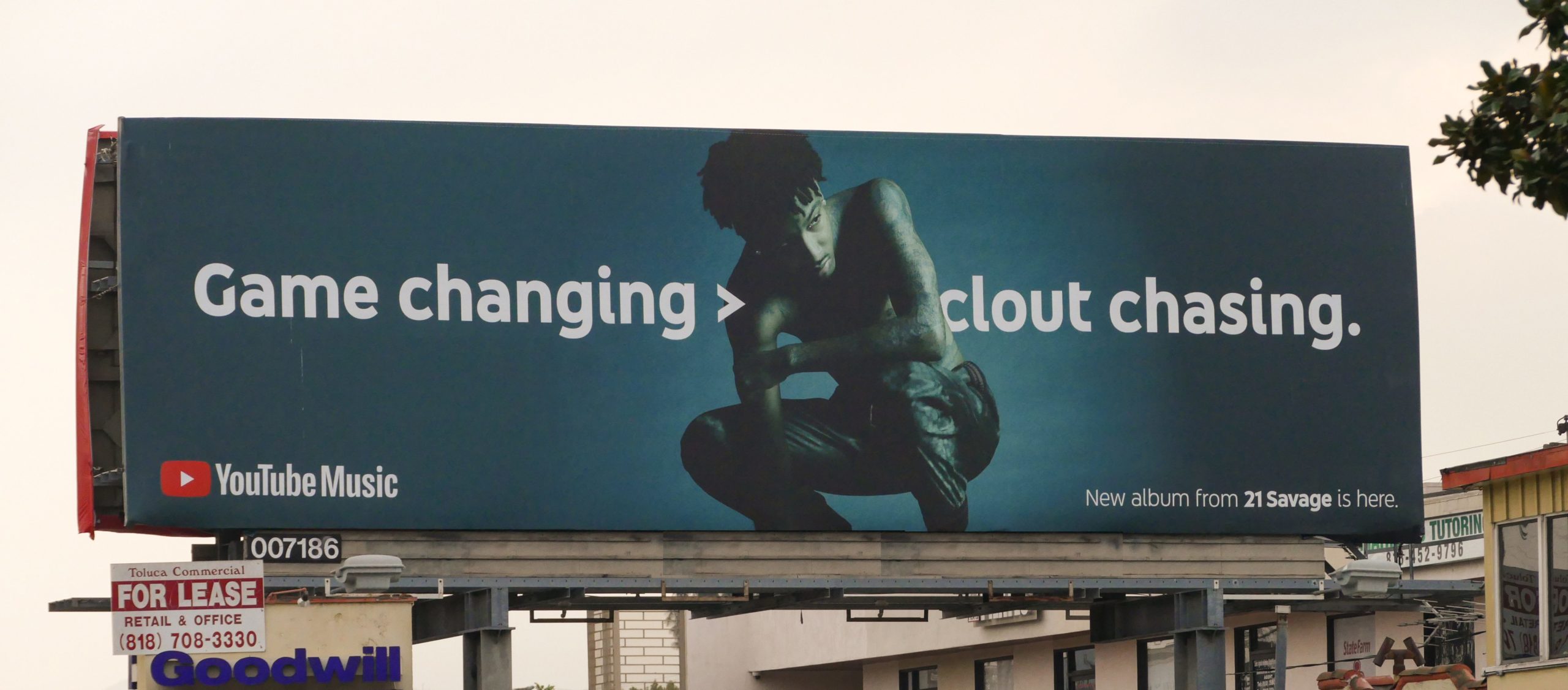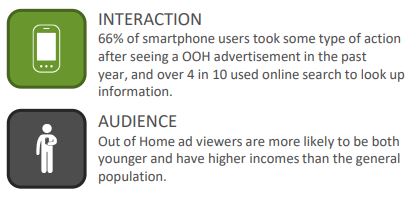

Gen Z, defined as those born after 1998, commands $44 billion in buying power. Some reports project this generation will command nearly 40 percent of all consumer shopping by 2020. What’s more, 93 percent of parents say their Gen Z offspring influence household spending.
Gen Zers belong to the first generation with easy access to technology most of their lives, but they usually ignore digital
noise unless it’s relevant. While they use smartphones for purchases more than any previous generation, they sill prefer brick and mortar stores. They value authenticity and real-world experiences.
For example, according to a report from Ad Age and student affinity network Unidays:
- 64% don’t listen to podcasts
- 56% don’t click on ads when browsing websites
- 84% pay attention to OOH advertising
The latest report from OAAA and Nielsen, released last month, also found OOH’s highest index is among young consumers. Nielsen found OOH reaches 90 percent of US travelers ages 16+ in a month, and 80 percent of this audience in a week.
OOH vs. Digital Advertising
According to a study by Kantar Millward Brown, Gen Zers favor OOH because they find it “relaxing.” Unlike digital ads that can track them no matter where they go online, they see their experience of OOH ads as being fully under their control.
Gen Zers feel like they get too much information on their phones and don’t appreciate an advertiser adding to that overload. According to an April 2018 EMI Research Solutions survey, 41 percent of 13- to 18-year-olds said they felt overwhelmed by the number of notifications they got.
OOH & Digital Advertising
Gen Z relies on mobile devices to research products, engage with brands, discover new items, and make purchases.
The Nielsen study found 33 percent of OOH viewers have searched for the advertised brand online, and nearly a quarter have visited an advertised website in the past year. Fifteen percent visited an advertiser’s social media page.
“They like ‘bricks and clicks,’” said Alex Gallagher of Unidays, referring to physical stores and online shopping channels. “It’s critical for brands to develop a cohesive strategy, across both online and offline, that caters to their unique preferences.”
Published: June 17, 2019